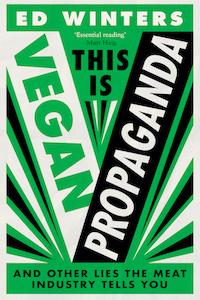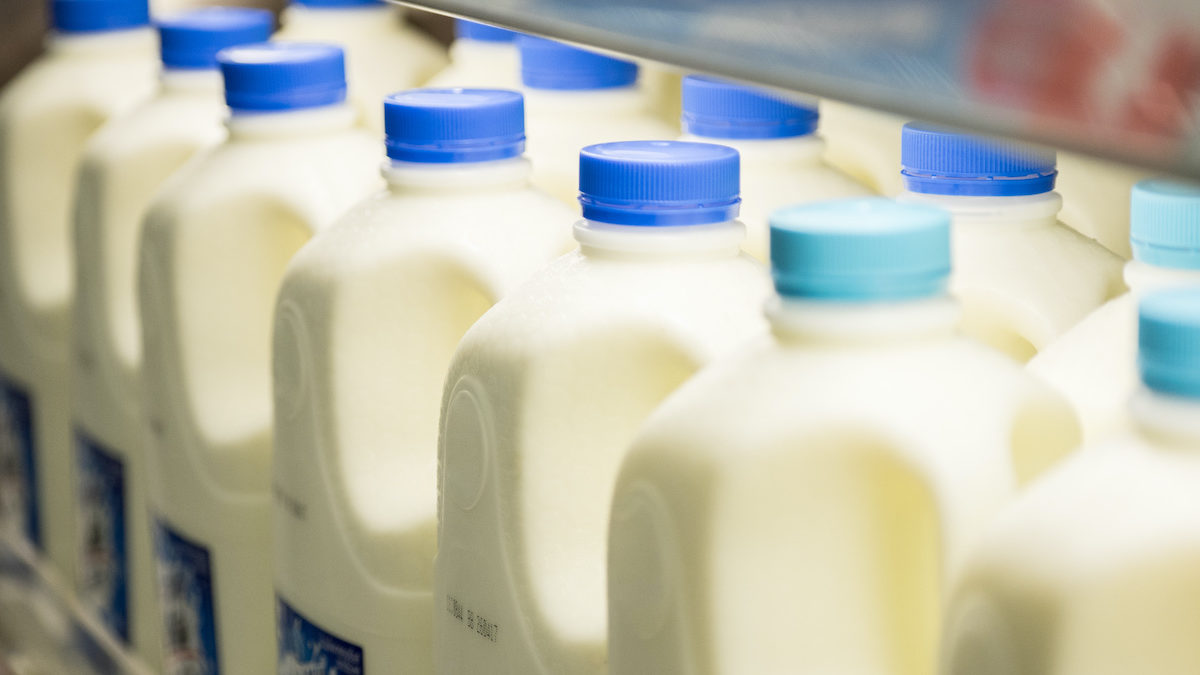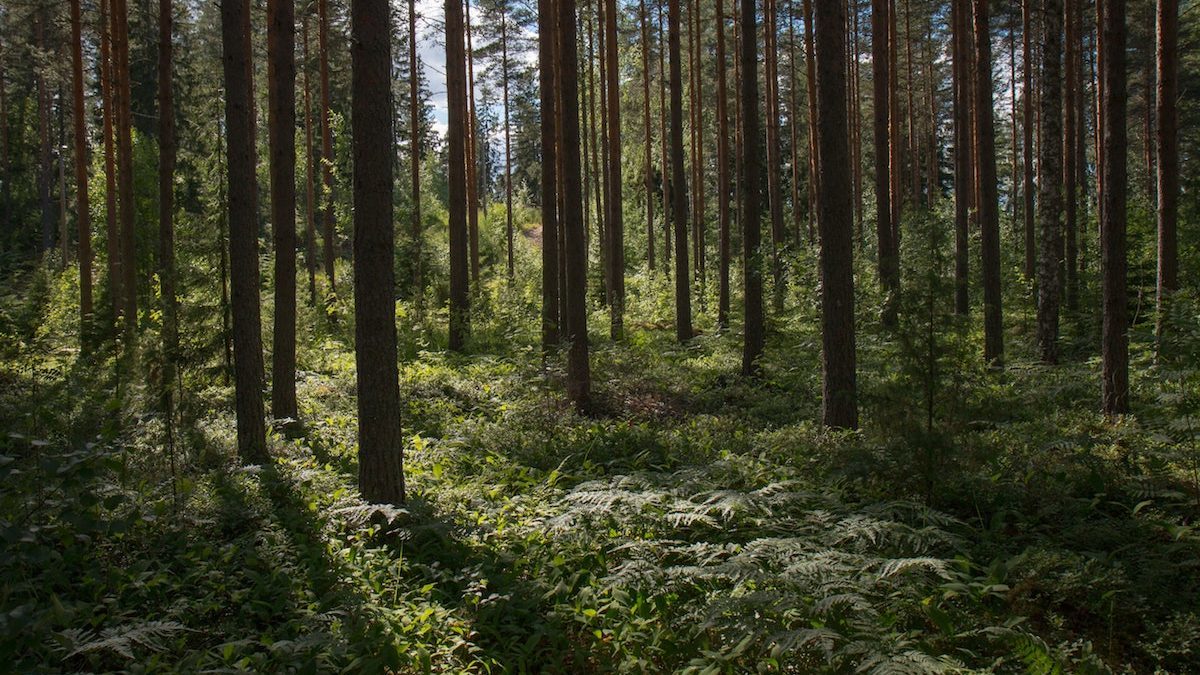Ed Winters: ‘Veganism Is More Than Just a Diet Choice’

It says something about the rise of veganism that this year, 2 million people in the UK are estimated to have signed up for Veganuary, the annual challenge that involves pledging to eat only plant-based food for a month. Figures suggest that people are spending more money on vegan products than ever before and with plant-based diets trending online, there’s little doubt that social media has played a huge part in the rise of the movement.
Between Instagram posts of foamy oat lattes, viral Beyond Meat burgers and avo on toast, the lifestyle — largely driven by internet creators — has become one of the most carefully curated trends of recent years. But with so much clever marketing around veganism, it’s easy to forget the major reason why we should consider the diet in the first place. Put simply, industrially farmed animals pose one of the most pressing ethical questions of our time, while contributing to some of the biggest issues we face today.
A Question Of Moral Integrity
Ed Winters is a vegan educator, TEDx speaker and the author of the meat-free manifesto ‘This Is Vegan Propaganda: (And Other Lies The Meat Industry Tells You)’ (Ebury, £14.99). Under the moniker Earthling Ed (@earthlinged), he gained viral attention across social media for his 2018 university lecture ‘You Will Never Look at Your Life in the Same Way Again’ which has been viewed a staggering 35 million times. In the talk, he explains how every time we eat, we have the power to radically transform the world we live in. Food, he says, is a simple form of micro-protest that can either alleviate our problems or add to them, taking in issues as pressing as climate change and human exploitation, animal cruelty and deadly viral pandemics.
 “In 2022, we often frame veganism as simply being just a diet choice,” says Winters. “There’s a good reason why, as food is the biggest reason why we choose to harm animals, but there’s also a major moral issue we need to consider too.”
“In 2022, we often frame veganism as simply being just a diet choice,” says Winters. “There’s a good reason why, as food is the biggest reason why we choose to harm animals, but there’s also a major moral issue we need to consider too.”
Referring to what sociologists have coined ‘The Meat Paradox’, Winters explains that humans have a long-standing flaw in our judgement where we have favourable views towards animals and unfavourable feelings towards hurting them; we eat factory-farmed pigs but say we abhor cruelty to dogs. Tradition and culture, he says, largely influence these decisions. “Through our daily choices, like food and clothing, we directly fund the very industry we morally say we’re against. There’s a dissonance between the purchase we’re making and the consequence of what we’re funding, and that’s something we really need to think harder about in the future.”
Despite food labels assuring consumers of decent welfare, when it comes to the treatment of farm animals, he believes there’s a moral grey area. “In the UK, we tout having the best welfare standards in the world; that we treat farm animals better than anyone else,” says Winters. When you look at the legal standard, that’s not untrue, but even so, we still use a number of farming practices that few could argue are humane. “We use gas chambers for pigs and poultry, we mutilate animals by cutting off their tails, we still raise many [animals] in cages, and we forcibly impregnate them. Beyond all that, we ultimately take their lives away,” says Winters. All of this, he explains, is not just legal, but standard practice in farming which consumers are often blissfully unaware of when they do their weekly shop.
“We go to the supermarket, and we see a label like ‘free range’ or ‘humane’ and we take that label as meaning something beneficial for animals, but ultimately, it’s a marketing ploy to sell us a product. When we view these catchphrases objectively, it becomes so obvious that the notion of a ‘humane slaughterhouse’, or a ‘high-welfare farm’ is an oxymoron in itself. These places are set up with the sole purpose of exploiting sentient beings.”
The Myth Of Happy Farm Animals
As well as lecturing at universities and other public speaking events, Winters mobilises his followers through grassroots, non-profit animal rights organisation Surge Activism — of which he is a co-founder and co-director. Its mission is to help spread awareness through online content and campaigns, helping consumers to better understand how the food industries operate.
For instance, in the UK, there are a number of schemes intended to reassure consumers that the animal products they buy were sourced from farms with high animal welfare standards. “Red Tractor is one of the biggest falsehoods that exists in food labelling,” believes Winters. The scheme is the UK’s largest animal welfare certification and is designed to assure consumers that the animals have been well cared for.
“Not many people are aware that [Red Tractor] is owned by the National Farmer’s Union so it can never be an independent, accountable organisation. Some of the board members that sit on the Red Tractor are also hired by companies like Avara Foods Limited, which are the UK’s largest producers of chicken, turkey and duck products,” explains Winters. “Essentially, it’s a farming organisation, run by farmers, which is supposed to hold farmers accountable.”
Winters says that the Red Tractor assurances only meet the basic legal requirements and rarely go beyond what is simply required by law, which means they still allow for many practices which the majority of us would deem “cruel”, such as overcrowded cages and painful mutilations. Despite this, the label is applied to products and sits on food shelves to suggest something more meaningful for the animal’s welfare.

What’s Best For The Planet?
And then there’s the environmental argument. Meat farming is a mammoth contributor to global warming, producing somewhere between 14.5 – 18 percent of the UK’s total annual emissions, and veganism is often cited as our best chance to save the planet while meeting the strict targets set in the Paris Climate Agreement.
The land use that goes into rearing farm animals is also an issue. “Globally 83 percent of all agricultural lands are used for animal farming, with only 17 percent used for plants directly grown for human consumption,” says Winters.”Yet [meat] provides less than 20 percent less of our calories and less than two-fifths of the protein that we consume.” Essentially, a huge amount of land is used for what is comparatively nowhere near enough resources to justify the nutrients.
Even in the UK, a whopping 48 percent of the entire landmass is used exclusively for animal farming. “If we were to eliminate animal products and switch to plant-based diets, globally we could free up about 75 percent agricultural mass and still feed everyone.”
Winters believes that this method of land grabbing can give us natural resources for rewilding projects that can help to reverse climate change. “This could mean reforesting the land, planting wildflower meadows and long grass meadows, restoring peatlands and wetland — basically returning the lands that we’ve destroyed for farming back to the wild.
“Not only does it help to increase the biodiversity of animals and plants, but it also allows us to sequester carbon from the atmosphere. If we were to rewild the farmland that we no longer need for the plant-based food system, we could offset our carbon emissions by about 15 percent each year.”

It’s All About Being Conscious Consumers
If the meat industry is so destructive to the planet and animals, should it really be on the consumer to enact change? After all, it’s completely legal in the UK for food companies to slaughter animals for meat. “It’s a dangerous trap to fall into, to think that something is right, simply because it’s legal,” argues Winters. “When it comes to choosing the right thing to do from a moral perspective, we should look beyond the law. Historically, it’s often the deeply entrenched values and belief systems that can end up being the most deeply immoral in retrospect.”
Plenty of us can rattle off the headline reasons to go vegan, but few of us really understand the true scale of the issues at stake or the devastating implications on both human and non-human life. Winters’ book and online talks are a good starting point for anyone looking to educate themselves on the vegan argument, or to better understand how the current system of animal farming effects us.
“The phrasing ‘informed decision’ is so important because we have been so uninformed in our decision making in the past,” says Winters. “That’s not through any fault of our own necessarily, it’s just we were never given both sides of the argument or the option to scrutinise these industries. We are in a unique situation now where we have the information. Finally, we can become true conscious consumers.”



















